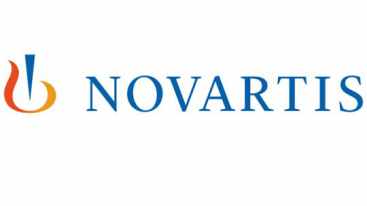Results from year two of the pivotal Phase 3 KITE clinical trial reaffirmed visual acuity gains and fluid reduction findings as well as safety profile from year one

Novartis announced positive results from two Phase III clinical trials assessing Beovu (brolucizumab) 6 mg versus aflibercept 2 mg in patients with diabetic macular edema (DME). Year two of the pivotal KITE trial evaluated Beovu on up to 16-week dosing intervals, and the one-year KINGFISHER study evaluated Beovu dosed every four weeks. Both trials demonstrated an overall well-tolerated safety profile.
Results from year two (week 100) of KITE demonstrated that a majority of patients who completed an initial 12-week cycle following the loading phase were maintained on a 12- or 16-week dosing interval through the end of the study. As previously reported, KITE met its primary endpoint of non-inferiority to aflibercept in best-corrected visual acuity (BCVA) from baseline at year one (week 52). At year one, Beovu showed greater reductions versus aflibercept in central subfield thickness (CSFT) and in the number of eyes with intraretinal fluid and/or subretinal fluid (IRF/SRF), which were key fluid-related secondary endpoints. Year two results were consistent with those seen at year one, including maintenance of BCVA and greater reductions in CSFT and in the number of eyes with IRF/SRF treated with Beovu versus aflibercept. CSFT is a key indicator of fluid in the retina, and fluid is a key marker of disease activity. Year two findings from KESTREL, another pivotal Phase III trial of Beovu in DME, are due to read out in Q4 of this year.
“Patients with DME often struggle to adhere to burdensome treatment schedules as they manage various comorbidities related to diabetes,” said Prof. Dr. Justus Garweg, Clinic Director, Berne Eye Clinic at Lindenhof Hospital, Switzerland. “The extended dosing and fluid resolution observed in the KITE clinical trial suggest Beovu has the potential to manage the disease in appropriate patients with a relaxed loading phase every six weeks, and dosing intervals as infrequent as every twelve or sixteen weeks.”
Another Phase III trial, KINGFISHER, met its primary endpoint of non-inferiority to aflibercept in the change in BCVA from baseline at year one (week 52) when dosed every four weeks3. Beovu also demonstrated superiority versus aflibercept in key fluid-related secondary endpoints at year one, including reductions in CSFT and in several eyes with IRF/SRF.
In KITE, the most common (≥5%) overall adverse events were cataracts and dry eye. Rates of intraocular inflammation (IOI) in KITE were 2.2% for Beovu and 1.7% for aflibercept, and no retinal vasculitis (RV) was reported in either arm. Rates of retinal vascular occlusion (RO) were 0.6% for Beovu versus 0.6% for aflibercept. In KITE, the majority of IOI events were manageable and resolved without any clinical complications. No RO events were associated with inflammation or vasculitis.
In KINGFISHER, the most common (≥5%) overall adverse events were COVID-19 and hypertension3. Rates of IOI were 4.0% for Beovu (including 0.9% RV) and 2.9% for aflibercept (including 0.6% RV)3. RO rates were 0.3% for Beovu versus 0.6% for aflibercept3. The majority of IOI events were manageable and resolved without any clinical complications3. No RO events were associated with inflammation or vasculitis.
“The year two KITE results reaffirm that Beovu may meet an important need to extend dosing intervals for patients with diabetic macular edema, who are often overburdened with medical appointments,” said Jill Hopkins, Global Development Unit Head, Ophthalmology, Novartis Pharmaceuticals. “Along with the top-line results from KINGFISHER, the KITE findings add to the growing body of data supporting our understanding of where Beovu may potentially fit into the DME treatment landscape. We look forward to continuing discussions with global health authorities about the findings from the KESTREL and KITE clinical trials, and we will continue to assess the clinical relevance of the positive KINGFISHER findings.”

Subscribe To Our Newsletter & Stay Updated